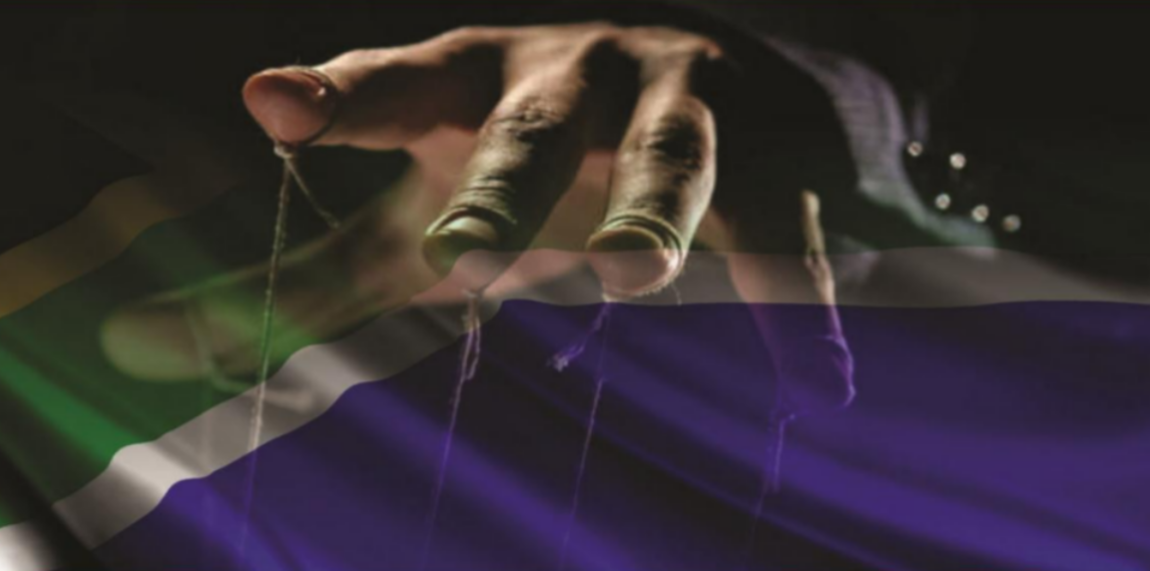Chanting “Wathint` abafazi, Strijdom! Wathint` imbokodo uzo kufa!” outside the Union Buildings 62 years ago, it was Albertina Sisulu and other women anti-apartheid activists who paved the way for the vibrant women rights activism we have in South Africa. 2018 marks the centenary of Mama Albertina Nontsikelelo Sisulu. To celebrate the great woman, SHAAZIA EBRAHIM and FATIMA MOOSA look at her life and the lessons we can learn.
Mam’ Albertina is referred to as the “Mother of the Nation”. She was a nurse and a political activist, who married fellow activist Walter Sisulu. Mam’ Albertina fought against patriarchy and racism and was instrumental in winning South Africans political freedom.
“Women are the people who are going to relieve us from all this oppression and depression. The rent boycott that is happening in Soweto now is alive because of the women. It is the women who are on the street committees educating the people to stand up and protect each other.” – Albertina Sisulu
The Young Albertina
Like many South African liberation leaders, Sisulu was born in Transkei. In the year 1918 when Sisulu was born, the Spanish flu spread to South Africa killing 30 000 people in Transkei. Her mother was ill with the virus when she was pregnant with Mam’ Albertina, but gave birth to a healthy baby on October 21. She was known as Nontsikelelo Thethiwe until she attended a local mission school where she chose the name Albertina. And so the name Albertina Sisulu became synonymous with the liberation movement.
Growing up, Sisulu was the eldest of eight girls in her extended family and was tasked to take care of them. From a young age, Sisulu displayed strong maternal instincts which is a characteristic that continued in her life. Her leadership qualities and maternal instincts underlined the respect she earned during the struggle when she was referred to as the “Mother of the Nation”.
In 1936, she began schooling at Mariazell College in Matatiele in the Eastern Cape. Although Sisulu’s scholarship covered her board and lodging, she had to pay it back during the school holidays by working the fields and doing laundry – and only went home in December.
After school, Sisulu decided to work to support her family. She wanted to become a nun but was dissuaded by the fact that nuns don’t earn a salary. Eventually, Sisulu was advised to consider nursing because trainee nurses were paid to study. She was accepted as a trainee nurse at a Johannesburg “Non-European” hospital, Johannesburg General, and in January 1940 she left for Johannesburg.
In Johannesburg: Nursing, Racism and Walter Sisulu
In Johannesburg, Mam’ Albertina led a very frugal lifestyle and hardly left the nurses’ residences. Only in her second year in Johannesburg did she take part in social activities. She played tennis, made new friends and explored the city with her cousin Jumba, a migrant worker living in Alexandra.
It was in Johannesburg that she experienced racism for the first time. There was an unofficial policy of racial segregation amongst the staff of Johannesburg General where white nurses were considered superior to their black colleagues. Six months into training, Mam’ Albertina witnessed blatant racism and discrimination against black patients after a horrendous accident at Park Station. The Non-European section of the hospital was swamped. Despite the senior black medical staff appeal to the hospital authorities to allow black patients to be treated in the European wards, white authorities refused.
This incident profoundly affected Mam’ Albertina who couldn’t believe that medical practitioners would abdicate their duty and deny the best possible care to patients base on their skin colour.
In 1941, Mam’ Albertina met Walter at the nurses’ residence and the two soon began a relationship. At first, she just supported Walter’s politics but after she married him in 1944, became increasingly involved. The couple lived at No. 7372 in Orlando, Soweto where a slew of prominent activists were in and out. Around 1947, Walter quit his job to join the African National Congress (ANC) full-time. Mam’ Albertina took on the responsibility of supporting the family as the sole breadwinner despite that wages for black nurses were not much – and that a formal introduction of apartheid loomed.
Strong Activism History
Albertina Sisulu has a long history of activism starting from when she attended her first ANC meeting with her husband. The ANC did not allow women into the party at first. It was only in the 1943 conference that women were allowed to join and in 1948 the ANC Women’s League was formed. This marked the beginning of Albertina’s life as an activist.
One of her most significant moments of activism was being one of the organisers of the historic anti-pass Women’s March in 1956. Sisulu helped undermine apartheid rules about groups gathering. She, along with the leaders, decided to use trains to transport women. Mam’ Albertina was there at 2am on August 9, 1956 at the Phefeni train station buying and distributing tickets to women attending the march.
In 1958, the South African Nursing Council demanded that all nurses and student nurses supply their identity numbers to the council. The women organised by the ANC Women’s League including Sisulu, held protests against this and pass laws in Soweto. Mam Albertina and over 2000 other women were jailed for participating in these demonstrations.
In 1981, she was elected the co-president of the United Democratic Front (UDF).
It’s also her centenary. #AlbertinaSisulu100 pic.twitter.com/um8oDZOiHU
– Mathanda (@MathandaNcube) July 20, 2018
Longest Banning Order Ever
Mam’ Albertina was the first woman to be arrested under the General Laws Amendment Act. it gave police the right to arrests suspects without detention. While in detention, she was placed in solitary confinement for almost two months. She was threatened by the police and cut off from any interactions with the outside world. Only three weeks after her release from jail, did Mam’ Albertina even find out Walter Sisulu had been arrested at Lilliesleaf.
After her release, Mam’ Albertina was served with a five year banning order. This limited her movement. For the period of the banning order, she was not allowed to leave the magisterial district of Johannesburg. She could not visit any townships, hostels and compounds where Black people lived or any area besides Orlando where she lived. Mam’ Albertina could not communicate with any banned or listed person except her husband. She was banned from attending any social gathering.
Five years after her first banning order, Mam’ Albertina was told by the state police that her banning order had renewed for another five years. She was placed under partial house arrest. Despite the banning order and other restrictions, she was an active member of the South African Federation of Women (FEDSAW). She used the platform to mobilise young people and women to join the struggle. In 1979, two weeks after Walter and Albertina Sisulu celebrated their 35th anniversary, she was served with another two year banning order.
Due to her banning order, Mam’ Albertina was not even allowed to attend the funeral of her friend and comrade, Lillian Ngoyi who passed on in 1980. This was a very soul-crushing thing that she had to go through. Finally in 1981, the banning order was not renewed. She had been banned for 18 years which was the longest for any person in South Africa.
After the banning order was lifted, she worked tirelessly to renew FEDSAW and rebuild many of the women’s organisation within FEDSAW. She also mentored a group of young women including Jessie Duarte and Susan Shabangu called MaSisulu’s girls’. This was part of her mission to develop what she called a “petticoat layer” of women leaders who would take over from the older women.
Throughout the apartheid years, Mam’ Albertina continually emphasised the role of women in the struggle. She worked extremely hard to ensure women’s organisations remained active and relevant.
Lessons From Women Activists
A celebration of women activists like Mam’ Albertina is a celebration of the maternal. In the celebration of the maternal we celebrate caring, nurturing and motherhood – qualities that are looked down upon but are important in the birth of the struggle. It is a celebration of the way the women of the liberation struggle took care of the children and the household so that their husbands could be activists. It’s a celebration how they then took care of the political party and it’s members when their husbands were arrested and in exile.
This great woman #AlbertinaSisulu100 may her life bear many lessons for younger generations. #InternationalWomensDay pic.twitter.com/jUfELPxoj5
– Tandi Mahambehlala (@MahambehlalaT) March 8, 2018
Reading the histories of Mam’ Albertina, Mam’ Winnie and other anti-apartheid activists, one thing that sticks out is how the contribution of women during the liberation struggle continues to be underplayed and erased. Most of the women during the struggle made such major sacrifices to allow their partners to be at the forefront. They gave up their studies, their activism and had to work and take care of their families. Yet their contributions are often sidelined. We need to be better to elevate these narratives so that their struggles are never forgotten.









